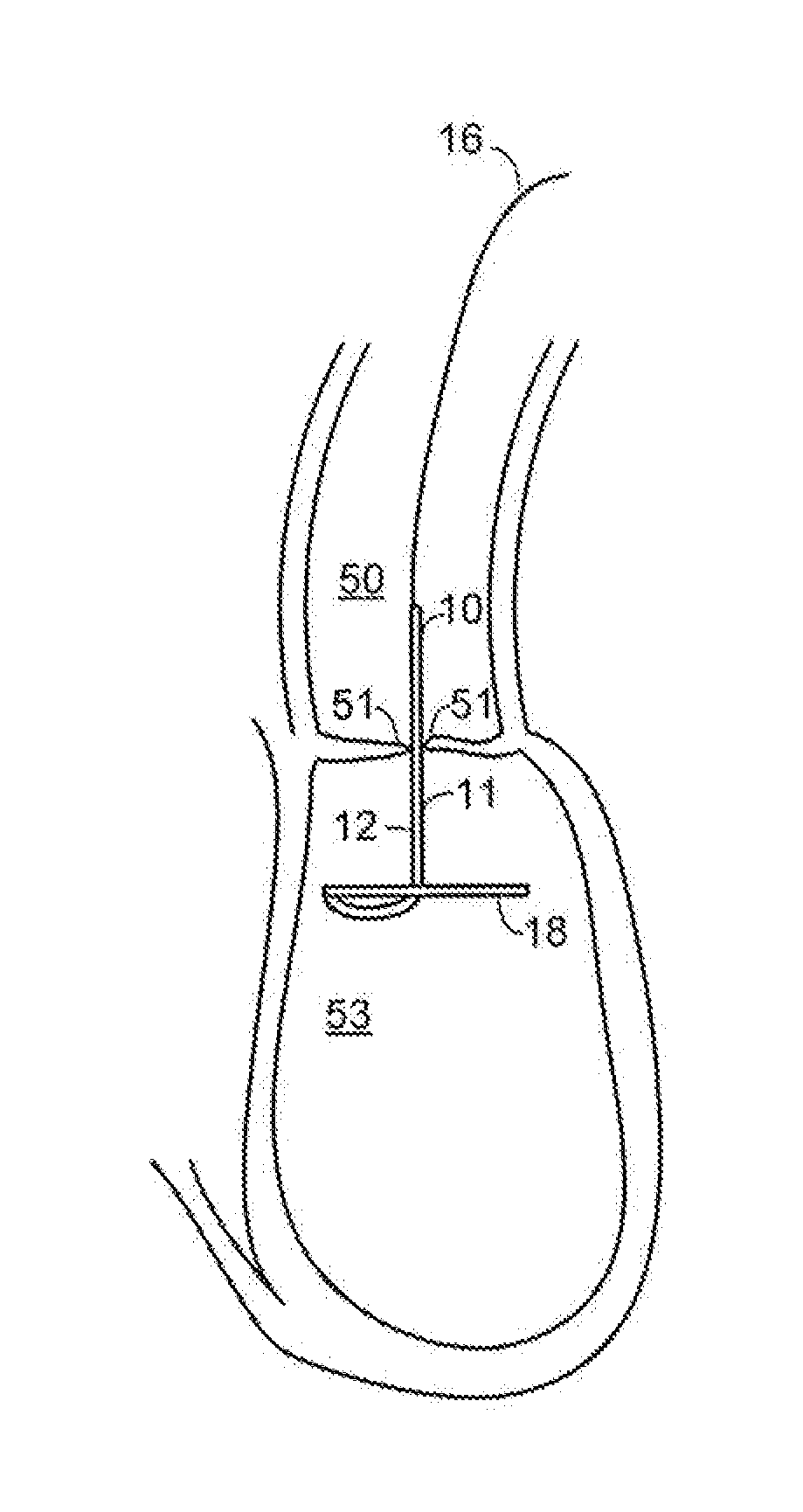TAVR Ventricular Catheter
a ventricular catheter and ventricular valve technology, applied in the field of ventricular valve catheters, can solve the problems of increasing the potential for heart failure, restricting the blood flow from the heart, and prolonging the procedure duration
- Summary
- Abstract
- Description
- Claims
- Application Information
AI Technical Summary
Benefits of technology
Problems solved by technology
Method used
Image
Examples
Embodiment Construction
[0017]FIG. 1 is a front perspective view of a TAVR ventricular catheter 10 according to an exemplary embodiment of the present disclosure, with the catheter 10 in its deployed configuration. In this regard, when the catheter 10 is inserted into an aorta (not shown), a guide wire 16 extends completely through the catheter 10. The guide wire 16 is stiffer than the catheter 10, and the catheter 10 is soft and flexible such that the catheter 10 conforms to the shape of the guide wire 16 when the guide wire 16 is extended through the catheter 10. The guide wire 16 is partially withdrawn from the catheter 10 to deploy the catheter 10, which then forms the deployed shape shown in FIG. 1.
[0018]The catheter 10 comprises a hollow cylindrical body 11 with an upper opening 15 and a lower opening 14. The catheter 10 is formed in one piece from a flexible material that is soft enough to conform to the guide wire 16. In one embodiment, the catheter 10 is formed via thin wall extrusion. The opening...
PUM
 Login to View More
Login to View More Abstract
Description
Claims
Application Information
 Login to View More
Login to View More - R&D
- Intellectual Property
- Life Sciences
- Materials
- Tech Scout
- Unparalleled Data Quality
- Higher Quality Content
- 60% Fewer Hallucinations
Browse by: Latest US Patents, China's latest patents, Technical Efficacy Thesaurus, Application Domain, Technology Topic, Popular Technical Reports.
© 2025 PatSnap. All rights reserved.Legal|Privacy policy|Modern Slavery Act Transparency Statement|Sitemap|About US| Contact US: help@patsnap.com



